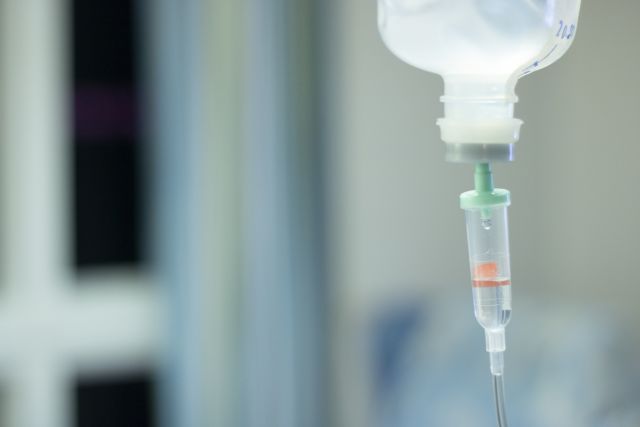Paroxysmal Nocturnal Hemoglobinuria (PNH) is a life-threatening blood disorder where the body destroys red blood cells. It can affect people of all ages, but it typically begins when a person is an adult. The average age of diagnosis is 35 to 40.
PNH is caused by a gene mutation in the stem cells inside the bone marrow. This causes the stem cells to mature into blood cells that do not work normally and are easily destroyed by the body’s immune system.
PNH is associated with other health conditions that affect the bone marrow and blood cell production, including aplastic anemia and acute myeloid leukemia (a type of cancer that begins in the bone marrow).
Red blood cells transport oxygen from the lungs to organs and tissues throughout the body—all the body’s major systems rely on oxygen to function and stay healthy. Red blood cells also transport carbon dioxide back to the lungs so it can be exhaled from the body (carbon dioxide is a byproduct produced when cells use energy).
When the body does not have enough healthy red blood cells, problems can occur.
People with PNH may experience shortness of breath, fatigue, bruising and bleeding, and pain, including abdominal pain, chest pain, and back pain.
Another common symptom is dark urine, which gives the condition its name—paroxysmal nocturnal hemoglobinuria is named for recurring episodes (paroxysmal) of hemoglobin in the urine (hemoglobinuria) that typically occur after a night’s sleep (nocturnal).
PNH can also cause serious complications, including anemia, blood clots, and bone marrow failure.
There are therapies that can help keep the condition under control, help keep blood cells at healthy levels, and help avoid complications. PNH is also sometimes treated with a procedure called an allogenic stem cell transplant.
Therapies to treat PNH
Treatment for PNH will depend on a number of factors, including the severity of the disease, a person’s age, and their medical history.
There are several medications approved specifically to treat PNH. These medications are a type of drug called monoclonal antibodies—lab-made proteins that interact with the immune system. Different types of monoclonal antibodies are used to treat a wide variety of different health conditions—cancers, inflammatory conditions, allergies, COVID-19 and other infections, organ transplant rejection.
The monoclonal antibodies that treat PNH work by blocking a specific protein in the immune system. This prevents the protein from working and disrupts the process that causes the immune system to break down red blood cells.
Because these medications increase the risk of infections, people receiving these medications need to be vaccinated against certain infections—specifically, meningococcal infections, bacterial infections that affect the brain and spinal cord.
Other therapies may include anticoagulant medications (also known as “blood thinners,” which help prevent blood clots), folic acid and iron supplements, and blood transfusions.
Stem cell transplant
A procedure called an allogenic stem cell transplant is used to treat PNH in some cases. This procedure is also known as a bone marrow transplant.
The procedure involves destroying all the remaining stem cells in a person’s bone marrow using chemotherapy and/or radiation therapy. Stem cells from a donor are added into the bone marrow. The donor needs to be a close genetic match to the person undergoing the procedure.
While a stem cell transplant can cure PNH, it is an intense procedure that comes with a risk of serious complications and is typically only recommended for severe cases that occur among younger, healthier patients, and only after other treatment approaches have not worked.



